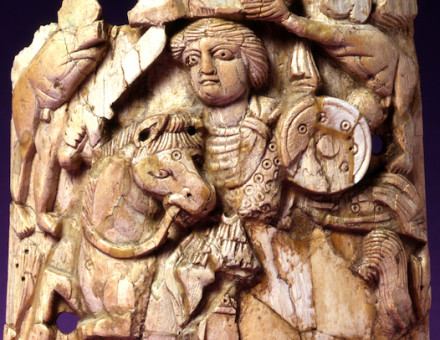Beaumarchais and the American Revolution
Arnold Whitridge introduces a musician, a financier, and a playwright who was also a secret agent; Beaumarchais believed in the success of American arms, and organized a flow of supplies and munitions from France to the hard-pressed colonists.
At the beginning of June, 1776, at about the time that the delegates of the Thirteen Colonies were steeling themselves to vote for independence, an American sloop sailed into Bordeaux with a Connecticut Yankee on board by the name of Silas Deane.
Mr. Deane was on his way to Paris. In an inner pocket he was carrying an important document signed by Benjamin Franklin, authorizing him to transact such business, commercial and political, as had been entrusted to his care by the Congress of the thirteen united colonies.
Actually, Silas Deane derived his authority from two separate committees in Congress. One of them, a commercial committee, authorized him along with four other merchants to buy colonial produce with money furnished by Congress, to ship the commodities so purchased to France, to sell them there and invest the proceeds in supplies needed by the colonies.





